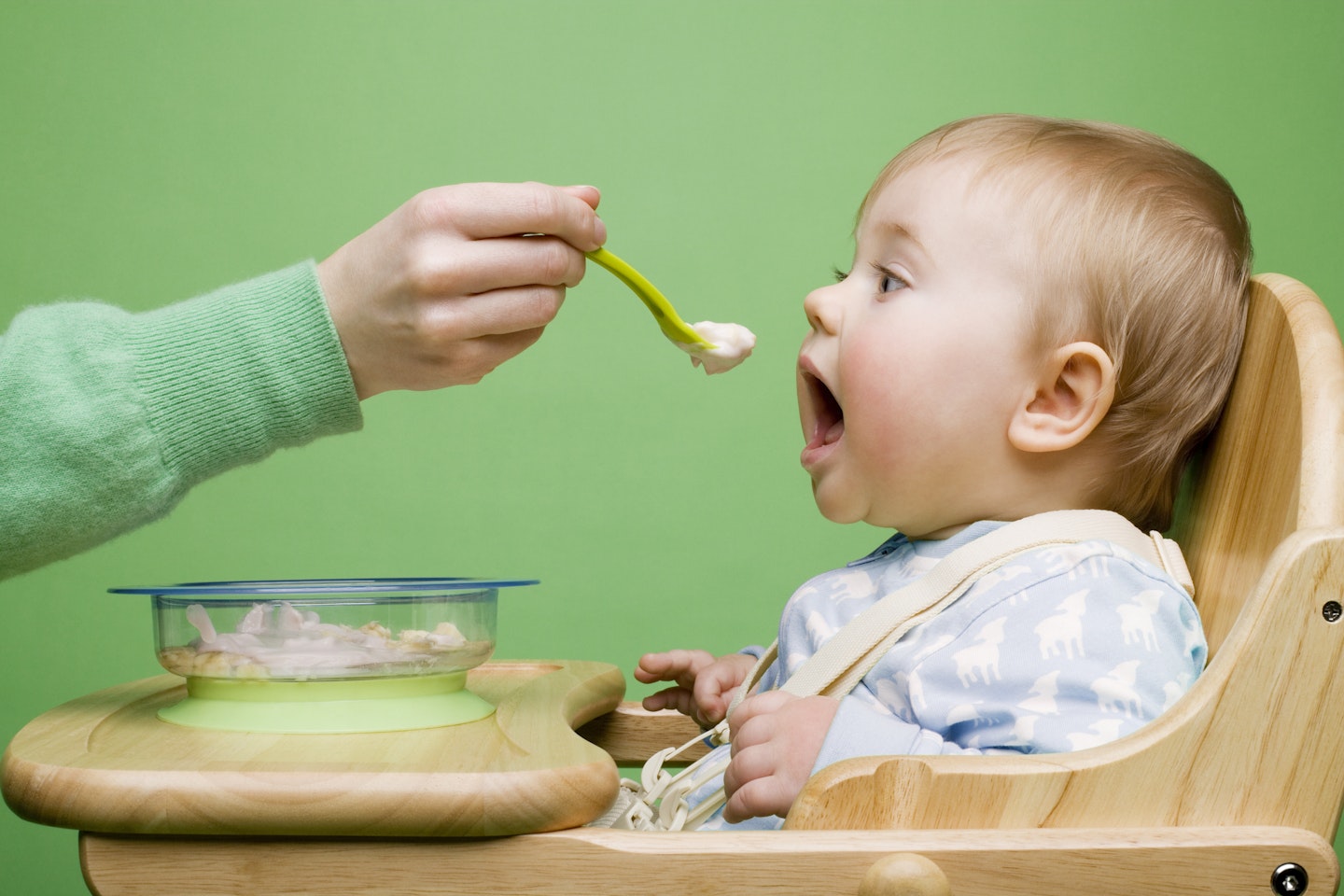Your baby’s digestive system can give you endless worries in the early days. Work out what’s making him uncomfortable – and how to get him happy again.
As anyone who’s ever changed a newborn’s nappywill tell you, babies’ digestive systems aren’t like ours – well, not yet anyway.
So until things settle down, get your condition-spotting skills up to scratch.
Tummy trouble
 1 of 5
1 of 51) Reflux
In babies, the valve that separates the top of the stomach from the food pipe, or oesophagus, is weak, which means stomach contents can ‘reflux’ – or flow upwards.
‘All babies bring back milk,’ says paediatric dietician Jackie Falconer. ‘But if your baby’s content and gaining weight, there’s no problem.’
Feed little and often and keep your baby upright for 30 minutes after a feed. But for some babies, reflux is painful and if you baby refuses to feed, you should see your GP.
 2 of 5
2 of 52) Vomiting
If your baby is bringing milk back more often than usual, it’s likely she has a stomach bug.
‘She will appear unwell, possibly with a temperature, and vomit more often than normal,’ says health visitor Liz Costagliola.
‘She may also lose her appetite.’ If you’re breastfeedingand she has a tummy bug, be guided by her. ‘She may want to feed every 15 minutes, but only take a couple of gulps each time,’ says Liz.
If she’s formula fed and her milk feeds seem to be making her sickness worse, offer her water instead.
If she vomits for several hours or shows signs of dehydration, such as a sunken fontanelle (the soft spot on her head) or she’s producing fewer wet nappies, it’s time to call your GP.
 3 of 5
3 of 53) Colic
No-one knows what causes colic, when a baby cries for at least three hours a day on at least three days a week, although some experts think colic is linked to trapped wind.
There’s no definitive cure, but over-the-counter remedies like Infacol or gripe water may provide some relief.
Warm baths and massage can also help. ‘If she doesn’t turn a corner after 14 weeks, seek medical advice,’ says gastroenterologist Dr Warren Hyer.
 4 of 5
4 of 54) Food allergies
Between two and seven per cent of babies under one are allergic to cow’s milk.
Even though babies this young shouldn’t drink cow’s milk, she could be getting dairy proteins from your breastmilk.
Problem is, diagnosing the condition is difficult.
‘For many babies, the reaction is delayed and symptoms – reflux, constipation, diarrhoea, abdominal pain, colic and abnormal stools – are easily confused with other conditions,’ explains Jackie.
‘The only way to confirm if she’s allergic is to remove dairy produce from your diet if you’re breastfeeding or switch to a hypoallergenic formula (on prescription).
If your baby’s symptoms have improved after two weeks, but flare up again when milk is reintroduced, a diagnosis can be made.’
But don’t turn Gillian McKeith on your baby – get advice from your GP before making any changes.
 5 of 5
5 of 55) Nappy issues
What’s inside your baby’s nappy can help you gauge her health.
‘It’s normal for breastfed babies to go a week or more between poos, and even formula-fed babies may go two to three days,’ says Dr Hyer.
‘As long as the stools are soft and your baby isn’t in pain, there’s no need to worry.’
Babies can become constipated – especially formula fed babies.
Add an extra ounce of water to her bottle to help increase her fluids.
